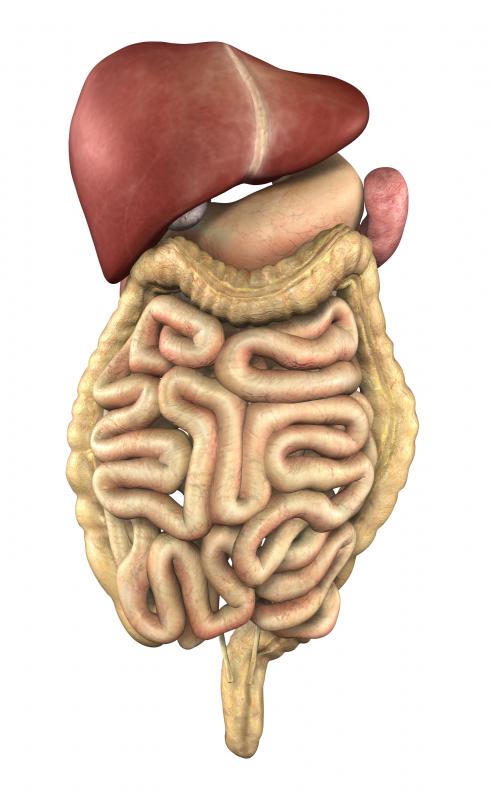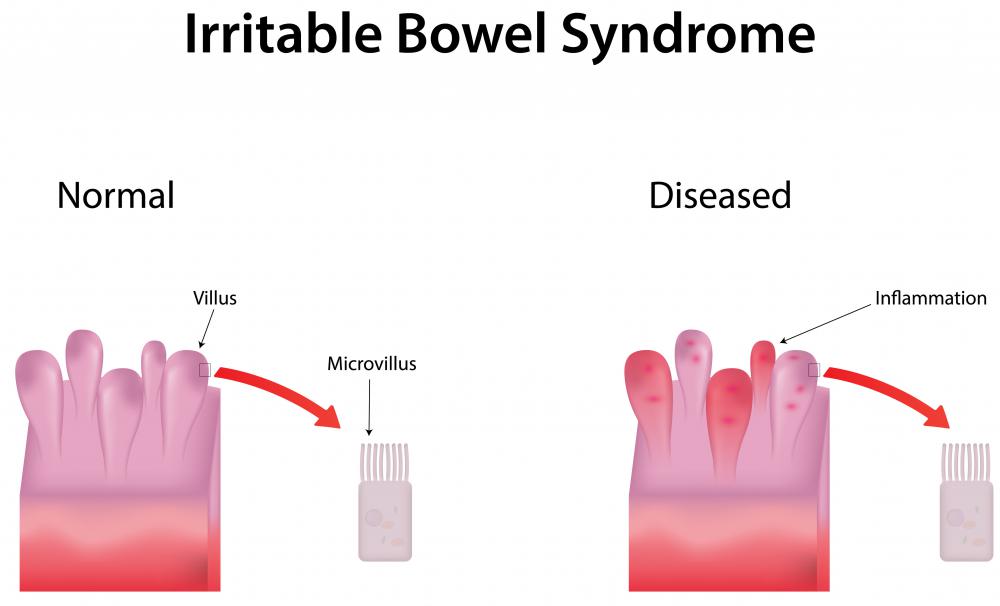At WiseGEEK, we're committed to delivering accurate, trustworthy information. Our expert-authored content is rigorously fact-checked and sourced from credible authorities. Discover how we uphold the highest standards in providing you with reliable knowledge.
What are the Different Types of Digestive Problems?
The organs that make up the digestive system in the human body are an amazing feat of mechanical engineering. In effect, the digestive system represents a delicate ecosystem in which the right balance of enzymes and “friendly” bacteria is necessary in order to digest food and absorb nutrients. Unfortunately, a number of things can go wrong and lead to a variety of digestive problems. Poor diet, chronic stress, excessive use of alcohol, smoking, and autoimmune disease are just some of the factors that can cause gastric distress. Fortunately, many of the most common digestive problems can be addressed with simple changes in lifestyle and dietary habits.
Heartburn and acid reflux affect almost everyone at one time or another. Overeating, pregnancy, and certain medications can often be blamed for these episodes. When the occasional burning sensation becomes chronic, the condition may have graduated to gastroesophageal reflux disease (GERD). Symptoms of “normal” heartburn and acid reflux can usually be prevented by limiting alcohol consumption, avoiding spicy foods, and refraining from lying down or bending forward shortly after eating. GERD, on the other hand, is of a more serious nature that warrants medication with H2 blockers and proton pump inhibitors.

Lactose intolerance is responsible for producing a gamut of digestive problems, including diarrhea, nausea, bloating, and abdominal pain. This occurs when there is a deficiency of lactase, the enzyme needed to break down and digest the sugar found in cow’s milk. Supplementation with this enzyme can put an end to symptoms in many cases. In addition, there are lactose-free dairy products available in most areas of the developed world.

Constipation is probably the most common digestive problem, especially among seniors. Many people misinterpret what constitutes constipation and worry if they can’t produce a bowel movement each day. In reality, a normal rhythm is considered anywhere from two or three times a day to only three times a week. The problem can be compounded by the overuse of laxatives, which only serves to train the bowels to become dependent on artificial stimulation. A better approach to get to the bottom of this problem is to increase fiber intake and get regular exercise.

Inflammatory bowel disease encompasses several digestive disorders, including irritable bowel syndrome, ulcerative colitis, and Crohn’s disease. These digestive problems stem from a faulty immune response that triggers the immune system to mistakenly attack the digestive tract. While a balanced diet is certainly a consideration in treating these disorders, the typical course of symptom management often includes medications, such as antibiotics and anti-inflammatory drugs.
AS FEATURED ON:
AS FEATURED ON:














Discussion Comments
The digestive system, when it's healthy, is like a well oiled machine. But the system and the organs involved are more sensitive than we realize. Eating unhealthy food, consuming alcohol or smoking, and medications can all cause digestive problems, some of them being serious. Oily, acidic foods and alcohol can lead to stomach ulcers or acid reflux disease.
Some medications like NSAID pain relievers can lead to ulcers as well. Excessive use of antibiotics can wipe out good bacteria in our gut and cause nausea, indigestion and diarrhea. Or an underlying health condition can upset enzyme balances, leading to indigestion, bloating and stomach pain.
So we need to do our best to take care of our digestive system and keep it healthy by avoiding these things when possible.
@ysmina-- It could be a case of food poisoning. Nausea, vomiting and diarrhea can occur if you ate something that was bad.
Do you have any other symptoms like fever?
If the nausea and diarrhea doesn't go away very soon, you need to go to a hospital. If you have a bacterial infection (which is usually the case with food poisoning), you might need antibiotics. Vomiting and diarrhea together can also lead to dehydration, so see a doctor if things don't improve.
What might be the cause of sudden nausea and diarrhea that doesn't go away? I was absolutely fine this morning, but have been running to the bathroom since the past few hours.
Post your comments